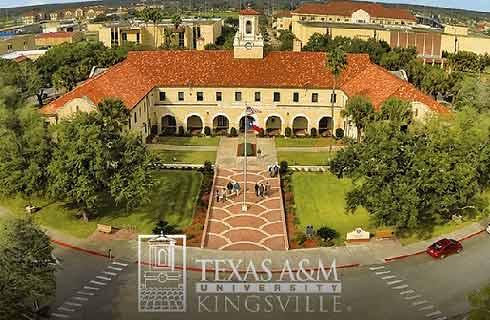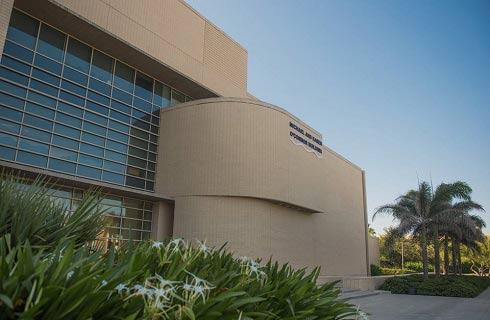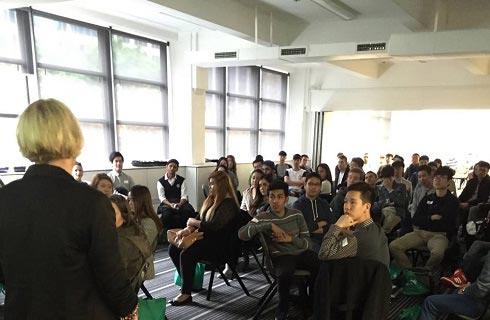生物医学科学士学位
BSc Honours Biomedical Sciences

学历文凭
Bachelor Degree with Honours

专业院系
School of Life Sciences

开学时间

课程时长

课程学费

国际学生入学条件
A levels – CCC (96 UCAS Tariff points), with two Science subjects from Biology, Chemistry, Physics or Maths
T levels – 96 UCAS Tariff points in Science
International Baccalaureate – 96 UCAS Tariff points from the IB including a minimum of 4 in two HL science subjects
BTEC Extended Diploma – MMM in Applied Science
BTEC Diploma – DD in Applied Science
Access – 96 UCAS Tariff points from the Access course in Science
In addition to one of the above, you should have:
GCSE English Language grade 4/C – IB grade 4 Higher level, GCSE Maths grade 4/C – IB grade 4
If your first language is not English, you will need an IELTS of 6.0 overall, with 5.5 in each component. TOEFL – 78 overall with a minimum of 17 in Listening, and Writing, 18 in Reading and 20 in Speaking.
IDP—雅思考试联合主办方

雅思考试总分
- 雅思总分:
- 托福网考总分:
- 托福笔试总分:
- 其他语言考试:
CRICOS代码: B940
申请截止日期: 请与IDP联系 以获取详细信息。
课程简介
Biomedical science is concerned with the detailed study of the human body, both in health and disease, with emphasis on the diagnosis and understanding of disease states and the mechanisms involved.<br>In Year 1 you'll study the important fundamental sciences, including biochemistry, cell and molecular biology, and human anatomy and physiology.<br>In Year 2 you'll develop your understanding of a wide range of disease processes, combined with the principles of laboratory procedures used to aid diagnosis and treatment.<br>Between Years 2 and 3, you’ll have the opportunity to undertake a professional placement year in industry. Alternatively, you can undertake a period of study abroad at one of Westminster’s partner institutions.<br>In Year 3 you'll focus on the study of the complex nature of disease as it affects particular biological systems. You'll also study the laboratory procedures used in haematology, clinical immunology, cellular and molecular pathology, clinical biochemistry and medical microbiology, to diagnose and monitor disease. You'll also undertake a major research project, which will enable you to develop the skills you need for genuine scientific inquiry.<br>Professional accreditation<br>This course is accredited by the Institute of Biomedical Science (IBMS). Honours graduates can apply for registration with the Health and Care Professions Council (HCPC) as Biomedical Scientists, provided they fulfil the additional HCPC requirements of competencies through suitable employment and completion of the IBMS certificate of competence.<br>This course is accredited by the Royal Society of Biology for the purpose of meeting in part the academic and experience requirement for the Membership and Chartered Biologist (CBiol). This programme has been accredited by the Royal Society of Biology following an independent and rigorous assessment. Accredited degree programmes contain a solid academic foundation in biological knowledge and key skills, and prepare graduates to address the needs of employers. The accreditation criteria require evidence that graduates from accredited programmes meet defined sets of learning outcomes, including subject knowledge, technical ability and transferable skills.<br>Careers<br>With a growing global network of 3,000 employers, our Careers and Employability Service is here to support you to achieve your full potential.<br>Career development<br>Our course has been designed to prepare you for a career in medical diagnostic, pharmaceutical and research environments. It provides you with a thorough education in the disciplines required to understand and investigate disease and enables you to develop your career in a variety of pathways in biomedical sciences.<br>We also have a strong record in preparing graduates for postgraduate study across a range of biomedical and molecular disciplines, as well as postgraduate teacher training.<br>We regularly monitor graduate career destinations and reflect on this information in the planning of the course curriculum.<br>Graduate employment<br>Graduates from Biomedical Sciences are widely sought after by employers. Major employment areas include:Clinical genetics laboratories<br>Clinical trials<br>Commerce (sales and marketing) related to healthcare and diagnostics products<br>Diagnostic pathology and clinical laboratories<br>Forensic laboratories<br>Government or charity-funded research laboratories<br>Medical devices and laboratory instrumentation industries<br>NHS Blood and Transplant laboratories<br>Private pathology laboratories<br>Public Health England<br>Regulatory affairs (drug registration and patents)<br>Research development for pharmaceuticals<br>Research laboratories in universities<br>Scientific writing and publishing<br>Teaching<br>Veterinary and agricultural laboratories
相关申请
 预科
预科 奖学金
奖学金 实习机会
实习机会 在校学习
在校学习 跨境学习
跨境学习 校园授课-线上开始
校园授课-线上开始 在线/远程学习
在线/远程学习
开学时间&学费
学费信息仅供参考,请与IDP联系以获取详细信息
| 开学时间 | 时长 | 学费 | 地点 |
|---|
学校排名

世界排名601
数据源:
泰晤士高等教育世界大学排名
关于威斯敏斯特大学

伦敦威斯敏斯特大学是一所真正意义上的全球性大学,坐落于伦敦市中心。学校秉承''助力学生全面发展''的使命,通过提供由行业前沿动态和最新研究成果驱动的实践型职业化教育,使学生掌握未来职业发展所需的核心技能、专业知识与人脉网络,从而在职业生涯中取得成功,并为社会创造深远价值。威斯敏斯特大学拥有来自160多个国家的19000名学生,是全球最具国际化的高等学府之一。该校国际学生多样性位居英国、美国、澳大利亚和新西兰之首。我们以多元化的学生群体为荣,并为国际学生提供全方位支持服务,包括:入学前专业咨询、迎新指导、专属职业发展服务,以及丰富多彩的社团活动与文化交流项目。以职业为中心的教育学生可以从400多个以职业为导向的预科、本科、研究生和研究型学位课程中进行选择。这些课程在设计时融入了行业意见,由经验丰富的学者和实践者授课,并采用多种现代教学方法。许多课程都获得了领先专业机构的认证,以确保学生毕业时掌握职场所需的技能。大学因其提供基于工作的学习以及为未来企业家和自由职业者提供屡获殊荣的教育和支持而备受推崇。根据Forage 2023年奖项,它是基于工作学习的领先大学,并入围了《泰晤士高等教育》2024年"杰出创业型大学"奖项和"伦敦高等教育奖"的"伦敦大学最佳创业计划"奖项。位于伦敦中心坐落于伦敦核心地带,威斯敏斯特大学让学生置身全球最具活力的都市中心。其中三所校区均毗邻摄政街与牛津广场(步行可达),而以创意传媒学科闻名的哈罗校区则位于伦敦西北部。
本校相关课程

硕士 城市设计
学历文凭
Masters Degree (Taught)
开学日期
课程费用总额


硕士城市和区域规划
学历文凭
Masters Degree (Taught)
开学日期
课程费用总额


理学硕士运输规划与管理
学历文凭
Masters Degree (Taught)
开学日期
课程费用总额


文学硕士翻译
学历文凭
Masters Degree (Taught)
开学日期
课程费用总额


硕士旅游管理
学历文凭
Masters Degree (Taught)
开学日期
课程费用总额


旅游规划与管理学士学位
学历文凭
Bachelor Degree with Honours
开学日期
课程费用总额

其他相关课程

生物医学学士
 皇家墨尔本理工大学
皇家墨尔本理工大学学历文凭
Bachelor Degree
开学日期
课程费用总额


哲学硕士-生物医学和生物化学
 澳大利亚国立大学
澳大利亚国立大学学历文凭
Masters Degree (Research)
开学日期
课程费用总额


生物医学学士
 詹姆斯·库克大学
詹姆斯·库克大学泰晤士高等教育世界大学排名:361
学历文凭
Bachelor Degree
开学日期
课程费用总额


理学学士(海洋生物学)
 弗林德斯大学
弗林德斯大学泰晤士高等教育世界大学排名:307
学历文凭
Bachelor Degree
开学日期
课程费用总额


理学学士-海洋生物学(荣誉学位)
 弗林德斯大学
弗林德斯大学泰晤士高等教育世界大学排名:307
学历文凭
Bachelor Degree with Honours
开学日期
课程费用总额


城市与环境规划学士/海洋生物学理学学士
 格里菲斯大学
格里菲斯大学泰晤士高等教育世界大学排名:258
学历文凭
Dual Degree
开学日期
13 July 2026
课程费用总额
AUD 167,500










 英国
英国